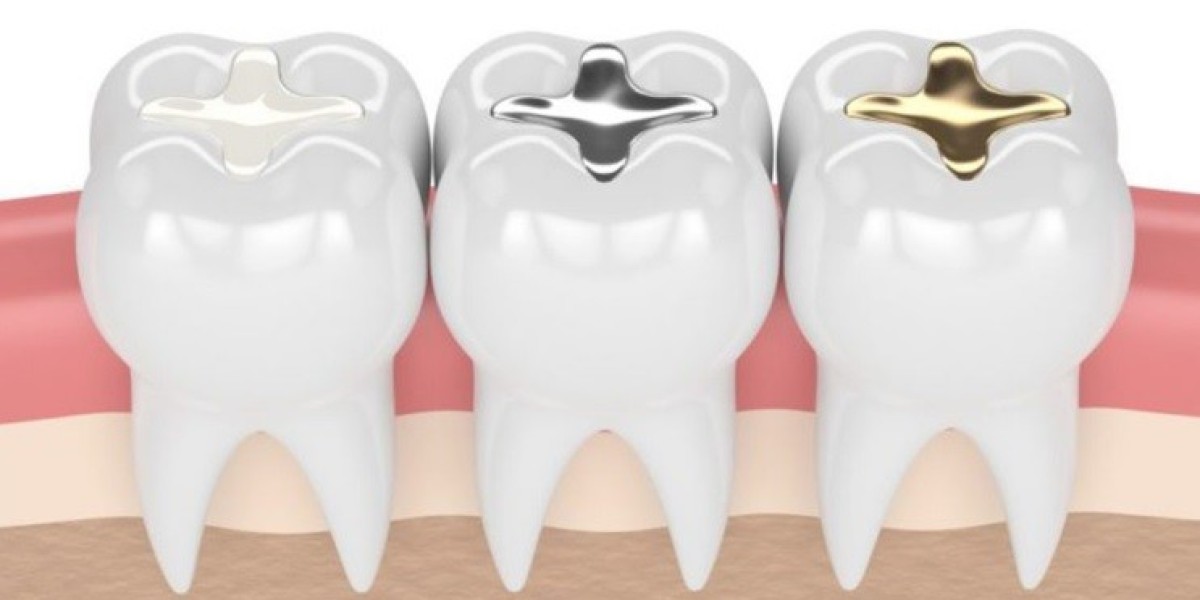Dental fillings are a common procedure used to restore the function and integrity of teeth damaged by decay. If you’re considering dental fillings in Riyadh, understanding the associated costs is essential. This guide aims to provide a comprehensive overview of the factors influencing the cost of dental fillings in Riyadh(تكلفة حشو الاسنان في الرياض), helping you make informed decisions about your dental care.
Understanding Dental Fillings
What Are Dental Fillings?
Dental fillings are materials used to fill cavities and restore the shape and function of a tooth that has been damaged by decay. The choice of material and the complexity of the procedure can influence the overall cost.
Types of Dental Filling Materials
- Composite Resin Fillings: These are tooth-colored materials that blend with the natural tooth. They are often chosen for fillings in visible areas.
- Amalgam Fillings: Made from a mixture of metals, these are more durable and are often used for fillings in the back teeth.
- Ceramic Fillings: These are made from porcelain and are known for their durability and aesthetic appeal.
- Glass Ionomer Fillings: These release fluoride and are generally used for fillings that are not subjected to heavy chewing pressure.
Factors Affecting the Cost of Dental Fillings
Type of Filling Material
The choice of filling material greatly affects the cost of dental fillings in Riyadh. Composite resins and ceramics are typically more expensive due to their aesthetic benefits and durability compared to amalgam or glass ionomer fillings.
Size and Location of the Cavity
The size and location of the cavity also impact the cost. Larger cavities or those located in hard-to-reach areas might require more complex procedures, thus increasing the overall cost. Fillings in visible areas might also cost more due to the need for higher-quality materials.
Complexity of the Procedure
The complexity of the filling procedure can vary based on the extent of the decay and the overall health of the tooth. More intricate procedures or those requiring multiple visits may contribute to a higher cost.
Additional Treatments
In some cases, additional treatments such as root canals or crowns may be necessary if the decay is extensive. These additional treatments can add to the total cost of dental fillings in Riyadh.
Cost Variations
Geographic Location
Costs can vary depending on the geographic location within Riyadh. Areas with higher living costs might have higher dental fees. Understanding local variations can help in budgeting for your dental care.
Clinic Reputation and Facilities
The reputation of the dental clinic and the quality of its facilities can also influence costs. High-end clinics with advanced technology and highly trained staff may charge more for their services. However, this doesn’t always correlate with better outcomes, so it’s important to consider value for money.
Insurance and Payment Plans
Dental insurance coverage can significantly affect out-of-pocket expenses. Some plans may cover a portion of the cost of dental fillings in Riyadh, reducing the amount you need to pay. Additionally, many clinics offer payment plans or financing options, which can make the cost more manageable.
Tips for Managing the Cost
Compare Costs
Before committing to a procedure, it’s a good idea to compare costs from different clinics. Obtain estimates and ensure that you understand what is included in the price. This can help you find a balance between cost and quality.
Prioritize Preventive Care
Investing in preventive dental care can help avoid more costly procedures in the future. Regular check-ups and cleanings can catch problems early and prevent extensive treatments, ultimately saving you money.
Inquire About Discounts
Some clinics offer discounts or special promotions for new patients or for paying in cash. Inquiring about these options can help reduce the overall cost of dental fillings in Riyadh.
Conclusion
Understanding the cost of dental fillings in Riyadh involves considering various factors, including the type of filling material, the size and location of the cavity, and additional treatments that may be required. By being informed about these factors and exploring options for managing costs, you can make a well-informed decision that fits your budget and dental needs.







